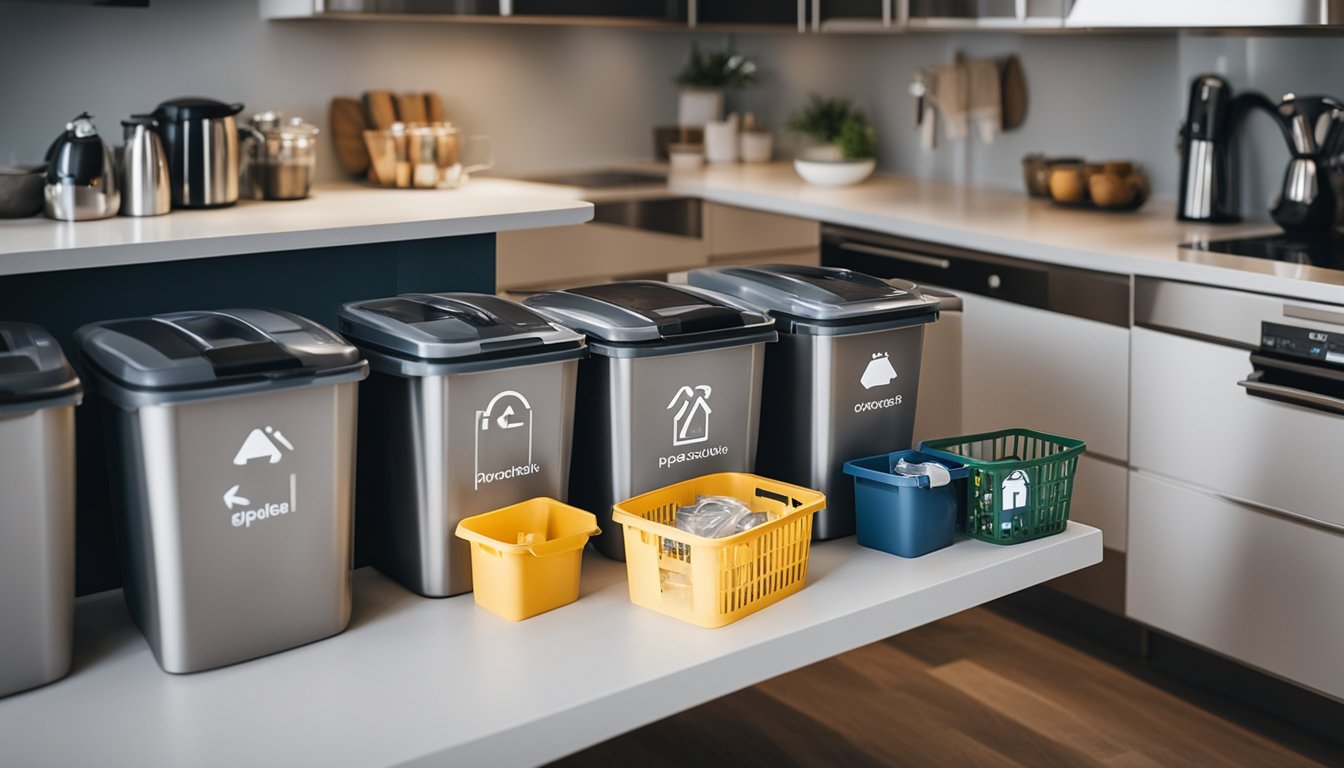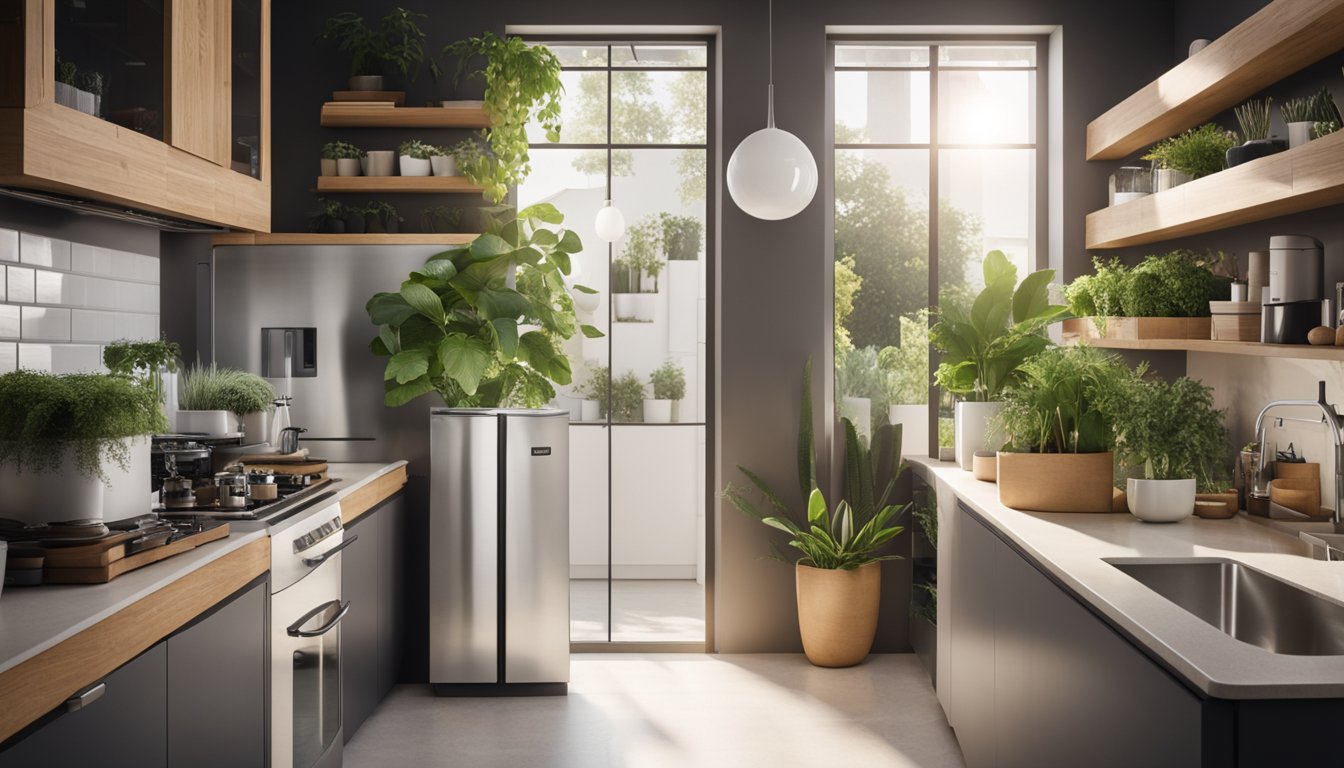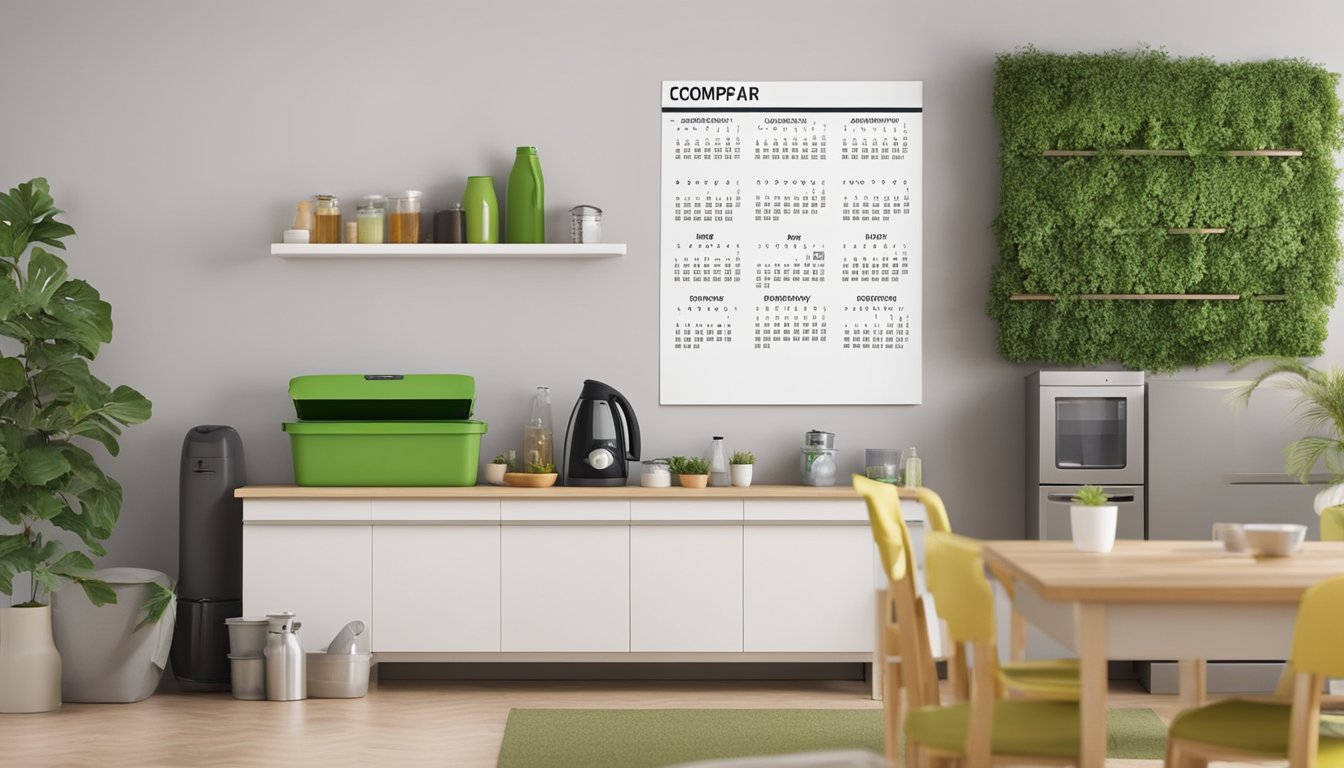Late updated: 26 Oct 2024 15:10
Written by: Sarah Hollister
Sustainable Home Organisation Tips: Transform Your Space Efficiently
With the increasing awareness of environmental issues, many of us are seeking ways to reduce our ecological footprint at home. Adopting sustainable home organisation practices not only helps us create a more eco-friendly living space but also enhances functionality and aesthetics. By integrating simple, yet effective strategies, we can achieve a greener home while maintaining organisation and style.

We often overlook the potential of giving existing items a second life. Repurposing furniture and upcycling materials can significantly decrease waste. This practice promotes sustainability and saves money, allowing us to make the most of what we already have. In addition to these practices, using natural light and choosing decor that holds personal meaning can align our homes with the principles of slow living.
Connecting with local communities through yard sales or donating unused items provides further opportunities to sustain strict organisation methods while lessening clutter. By embracing a mindset focused on sustainability, we can transcend conventional approaches and make impactful changes that reflect our commitment to an eco-conscious lifestyle.
Key Takeaways
- Embrace sustainable organisation for an eco-friendly home.
- Repurpose items to reduce waste and save money.
- Engage with the community to maintain sustainable practices.
Fundamentals of Sustainable Home Organisation
Sustainable home organisation involves integrating eco-friendly practices and reducing waste while maintaining a decluttered space. It focuses on choosing products made from sustainable materials to create a more efficient and eco-conscious living environment.
Embracing Eco-Friendly Practices
Incorporating eco-friendly practices into our organising routines is essential for a sustainable home. Reducing waste is a primary aim; we can start by following the reduce, reuse, recycle approach. Reusing items through creative repurposing helps minimise consumption. For instance, jars can be used as storage containers, and old fabric can be turned into cleaning rags. Additionally, opting for biodegradable materials for storage, like bamboo or cork, can significantly decrease our environmental footprint. Adapting these habits not only benefits the environment but also improves the organisation efficiency of our homes.
The Art of Decluttering
Decluttering is crucial for effective home organisation. It involves methodically sorting through our belongings and making decisions about what to keep, donate, or recycle. By reducing clutter, we make way for essential items, thus fostering a more functional living space. Implementing a composting system for biodegradable waste reduces landfill contributions and enriches the soil. Regularly checking cupboards, closets, and workspaces, and getting rid of what is unnecessary enhances our space's effectiveness. A well-maintained environment not only looks appealing but also supports sustainable practices by discouraging waste accumulation.
Choosing Sustainable Organising Products
Selection of organising products greatly impacts our sustainability goals. Opt for products made from sustainable materials such as recycled plastic, glass, or natural fibres. Recycled plastic organisers, for example, offer durability without the environmental impact of new plastic production. Investing in multifunctional furniture like beds with storage or fold-out desks maximises space while minimising consumption. Consider items that can be easily repaired or upcycled, extending their lifespan and reducing the need for new purchases. Sustainable products not only contribute to eco-friendliness but also provide a unique charm to our living areas.
Advanced Techniques for Home Efficiency

Maximising home efficiency involves employing a range of strategies that address smart storage, waste management, and eco-friendly maintenance. Transitioning to a more sustainable living environment can help mitigate global warming effects whilst enhancing our home organising practices.
Smart Storage Solutions
Implementing effective storage solutions is essential for organising our homes efficiently. By utilising sustainable storage options, we can reduce clutter and enhance accessibility.
Consider investing in modular storage units that allow easy reconfiguration according to our changing needs. Repurposing items, such as using wooden crates or glass jars as containers, can offer a creative and eco-friendly approach. Emphasising on vertical storage maximises space utilisation, helping us to keep our homes tidy and decrease the reliance on additional furniture.
Waste Reduction Strategies
Reducing waste is a cornerstone of sustainable home management. Recycling options should be a primary consideration in our strategy to lessen landfill contributions. Composting food waste not only minimises waste but also enriches soil for gardening.
Adopting habits such as going paperless for billing and paperwork can significantly cut down on paper waste. Employing reusable grocery bags and containers during shopping trips prevents unnecessary plastic consumption, playing a crucial role in reducing our environmental footprint.
Eco-Friendly Cleaning and Maintenance
Shifting to eco-friendly cleaning methods supports energy efficiency and promotes healthier living spaces. We can replace conventional cleaning agents with solutions that are safer for the environment and free from harmful chemicals.
Utilising green cleaning products made from natural ingredients or creating our own with substances like vinegar and essential oils can be as effective as commercial counterparts. Regular home maintenance, such as ensuring proper insulation and sealing leaks, conserves energy and optimises the home’s heating and cooling systems.
Implementing these strategies can lead to a sustainable, efficient household that benefits both us and the environment. Each change, no matter how small, contributes to a larger impact on reducing global warming and fostering sustainable living practices.
Frequently Asked Questions

Incorporating sustainability into home organisation involves a blend of practical, eco-friendly practices and smart product choices that benefit the environment while enhancing efficiency.
How can I make my home office more environmentally friendly?
We recommend starting with energy-efficient electronics, like LED desk lamps and computers with energy-saving features. Add plants to purify the air naturally, and utilise reusable or recycled paper products. Consider organising with sustainable materials, such as bamboo or recycled metal desk organisers.
What are some budget-friendly ideas for organising small spaces?
Reusing and repurposing items can be both cost-effective and sustainable. Old jars can be used for stationery, while shoe boxes make great drawer organisers. Vertical shelves and wall-mounted hooks maximise space without requiring significant investment.
What are the best eco-conscious products for home organisation?
Eco-friendly storage options include bamboo shelving, recycled plastic containers, and cloth baskets made from organic cotton. In the kitchen, glass jars and stainless steel containers are excellent for storing food sustainably.
How can households adopt more sustainable living practices?
We encourage implementing the "reduce, reuse, recycle" strategy. Opt for energy-efficient appliances, conserve water, and use natural cleaning products. Composting can also significantly reduce household waste, turning it into nutrient-rich soil for gardening.
Can you suggest some space-saving techniques for home organisation?
Folding furniture, such as Murphy beds or fold-away tables, can free up floor space. Multi-functional furniture, like ottomans with storage inside, maximises both space and functionality. Using pegboards and hooks can keep items off counters and neatly displayed.
What are some eco-friendly alternatives for common household organisational items?
Instead of plastic bins, opt for baskets made from natural fibres like seagrass or water hyacinth. Replace synthetic organisers with those made from upcycled wood or metal. Fabric organisers made of hemp or jute are sustainable and durable alternatives to synthetic materials.
